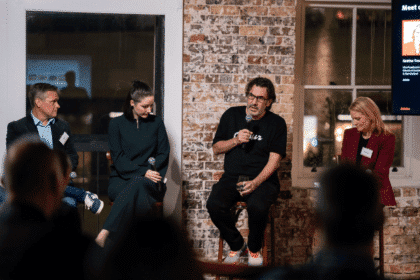Search Engine Optimisation (SEO) is nothing new, but the way we think about it needs to change.
For years it’s been a battle between understanding the algorithms to ensure we’re surfacing the best possible experience for those using a search engine, versus finding every loophole or grey area to leverage and get ahead; the good vs. the ‘naughty’.
These days are largely coming to an end. The Search engine algorithms are getting smarter, more personal, and less open to exploitation by those scrupulous few.
So, how can brands serve the algorithm, and how are the best businesses dominating organic and local search?
We spoke to David Castle, General Manager at Resolution Digital, about SEO trends, ways that people try to trick the algorithm, and how brands can dominate organic and local search.

Dominating SEO
While SEO can seem straightforward when speaking with a specialist in their field, it’s important to understand that the goal of what they’re doing is understanding and appeasing hundreds of signals and qualifiers. This, in turn, will ensure a website and other assets are, in the eyes of a search engine, the most relevant thing to show to someone who is searching.
“It’s not just about relevance to a term, although that’s important, it’s about the value you can provide to the person looking,” Castle said.
Ultimately the first key to dominating SEO is having good content and servicing the intent of the search. However, it’s just as important the technical side of things is being looked after.
When it comes to search engines and websites, everything is measured from the perspective of authority. Content allows you to build that authority and expertise on focus topics, however, the technical side of SEO allows you to retain, improve, and redistribute that authority throughout the website. If you can’t get your house in order, it’s all for nothing.
“If you have a hole in your bucket, it doesn’t matter how much water you add, you’ll lose it all” Castle said.
“We’ve had a client in the past who came to Resolution Digital because other global sites of their same brand were ranking above them in search. It’s only a small technical change, which admittedly can take some time, that allowed them to increase their traffic two-fold.”
Castle urges everyone to get their houses in order when it comes to the technical side of SEO. It’s not about being the best website that ever existed, it’s about understanding where you fall short of your competitors and what you can do to be the best of that bunch.
Is content really that important?
Content has been a focus of SEO for a long time. It’s a consistent prevailing trend each year and will continue to be important for the years to come. However, there is still a large amount of content on the internet that appears to have been created with the sole goal of improving rankings within a search engine.
“Make sure that your content is topic focussed, and created to serve a purpose to the customer, to ensure it creates value. Creating content purely to chase a keyword is the fastest way to create a poor experience,” Castle said.
He believes that companies can achieve a better result in SEO, by creating content that’s much more focussed and more valuable rather than hammering on a minute detail.
Which brings us to the second potential content trap, length.
“I’m still seeing a lot of lengthy articles being published, about the longer your content is, the higher chance you have to rank,” Castle said.
“Sure, the longer your content is the more chance you have of including semantic keywords. However, if the purpose can be served with a slightly shorter piece of content while driving more value, always err of the side value.”
Your content plan is key, in formulating this, you need to understand not just who you are producing content for but what part of their purchase journey or discovery journey they are on.
“We need to understand what they would expect, or what their intent is, when they’re searching for particular terms and create content to meet that expectation.” Castle said.
“As we get further and further towards the pointy end of the conversion path, you really need to be going in favour of the user experience on a page over long-form content.”
Castle says that it’s important that we don’t take a one size fits all approach to content and that we ensure, right the way through, that we’re creating content that provides more value to our customers and their needs than our competitors.
Castle described how important it is to understand where customers are spending their time and with whom. Understanding influences on the market and what other brands you can work with are also very important for crafting a content plan.
The General Manager from Resolution Digital also discussed backlinking, links on other websites that link to your own, and its importance in dominating SEO.
“Links to your site act as a vote of confidence in the eyes of a search engine, like you recommend a mechanic to a friend because they’ve done a good job. They generate authority to the site being linked to” Castle said.
Firstly, it’s important to note that all websites have their fair share of bad links, irrespective of how refined and perfect they may appear on the surface.
Castle said companies shouldn’t spend irrational amounts of time cleaning up their backlink profiles, attempting to remove all the bad links. In fact, years ago, spamming links from irreputable sites used to be a tactic by certain SEOs to take competitors out of the running. Search engines have gotten good at understanding what’s relevant and what isn’t.
If you can’t identify a drop in traffic with a link-based penalty from Google, draw a line in the sand and focus on building new and better links.
“You have to go about it in a qualitative way, the more authoritative the site linking, the more authority will be passed on,” Castle said.
By all accounts, it’s not easy, and it takes time, but when done right, it can be incredibly powerful. Understanding where your customers spend their time around the internet can shine a light on opportunities you may otherwise miss.
Changing our way of thinking?
Castle mentioned that we need to change how we think about SEO.
As time goes on Search Engine Optimisers (SEOs) are becoming more rounded, understanding more than just technical content, or being specialised in backlinks. SEO is greater than the sum of its parts and is becoming more and more about ensuring the experience of a customer or user is consistent across all owned and influenced assets within search.
“If we’re not developing a clear understanding of our customer’s different expectations on the website, in local search, on their phone, at their desk, etc, our efforts will always fall short. The moment we don’t meet an expectation, the experience is poor” Castle said.
One example of this discussed by Castle was the local search experience being something frequently forgotten by brands, especially with regards to reviews.
“You can have the most polished, perfect website, optimised perfectly and ranking beautifully. Your customers may only be two searches away from finding out that a large portion of your customers have reviewed you poorly,” Castle said.
It’s about putting your brand’s best foot forward throughout every interaction point online. Dominating SEO is a constantly evolving game and requires consistent review and an ability to quickly adapt to an ecosystem in flux.
By understanding how to properly service the algorithms, a company can achieve massive financial and performance benefits.
Find out more about Resolution Digital’s SEO services, to master your organic search.








